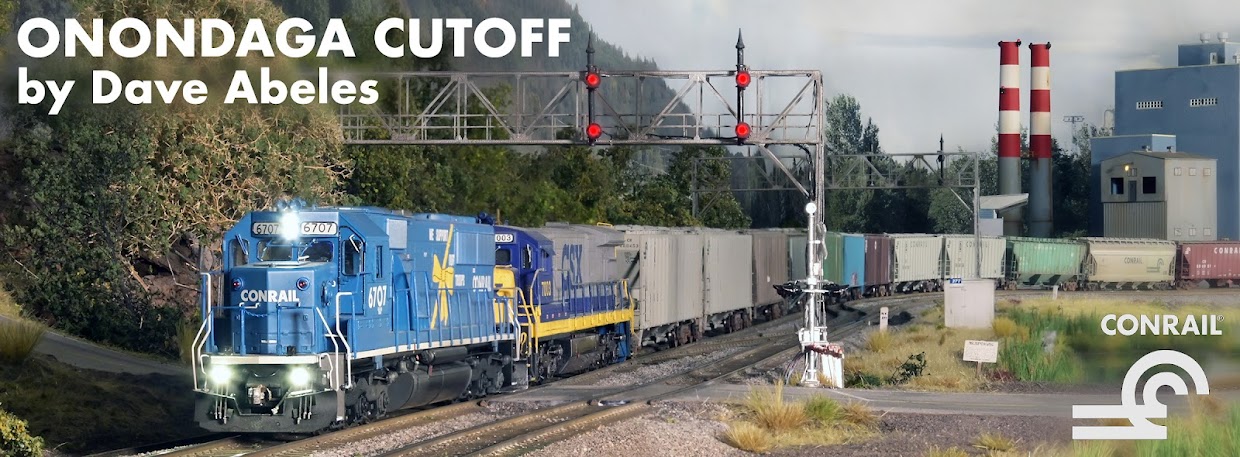In my case, several changes have been needed, but none more than those surrounding the staging yard. With the addition of the 'Island' track earlier this year, I added turnouts to CP274, and totally reconfigured CP294 to allow full access to staging and to the Island (see the March 2012 blog entry in the list to your right). While these changes made things significantly better for the dispatcher and the flow of train movements, it didn't solve the issue entirely. Then, after adding the NYS&W turn and another trainset more recently, staging flexibility again became paramount and the limiting factor on the railroad.
This was going to be a major project. I decided to use a Walthers (Shinohara) Code 83 'double crossover' that makes use of a diamond to reduce the length of the crossovers. While this would be very unlikely to be used on prototype freight roads, it saves a tremendous amount of space in staging! However, there is nothing that feels good about cutting into smooth-running trackage. That said, it is true that this would be an important capital improvement. I began work Friday night and completed it late Sunday night.
The new crossover has a closer track spacing than what I constructed. So, we had to swing one of the tracks to accommodate the new crossovers. First, as seen above, I used a long steel spatula to cut the adhesive caulk below S-4 and loosen the track assembly.
Once the roadbed was free, I was able to gently but firmly adjust the Micro Engineering flex track to relax the curve on S-4 a bit, all this while leaving the foam roadbed attached. Foam roadbed saved the day here! In the photo above, you can see the cut-and-throw in the track to accommodate the crossovers as I test-fit the installation several times before making any cuts.
After moving S-4, I removed just the track from the roadbed on S-5, since the S-5 alignment could remain the same. This was a gentle, careful process, done after cutting the rails. Slow & steady.
I cut ties off the ends of the crossover, slid rail joiners down all the way until they were clear of the ends of the new track, and then glued the new trackage in place, taking care to also slide the joiners onto the new connections. This was a delicate, trial-and-error process, but everything came together. Above, you can see the weights on the newly-glued track and roadbed while it cured overnight.
Finally, after removing the weights, I installed ground throws and feeder cables to the new crossover, then carefully adjusted gauge and the switch points using a test car and jeweler's files to ensure everything rolled smoothly. All that remains is to install ties beneath the joints, and we will be set to use the new "Midway" crossovers at the next operating session!
Finally, HAPPY THANKSGIVING to all of you out there - I am thankful for this great hobby, for the ability to be constructing a big layout, and for the community of modelers that appreciate it. Most of all, I'm thankful for my wife and family. Their support makes this project possible.
~RGDave







Great stuff Dave! Glad to see you getting back into the swing of it!
ReplyDeleteThanks Will! It's the journey that counts :-) Happy Thanksgiving!
Delete